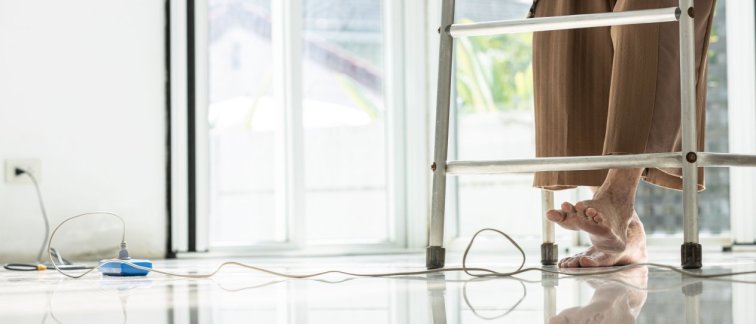The trajectory begins with staff in the emergency room. They are asked to recognize vulnerable patients and sign them up for the trajectory. After discharge from the hospital, the patient is given a home analysis, after which targeted preventive measures can be implemented.
"To dismiss a fall as an accident in people over 65 means misunderstanding an important problem. The cause of the fall incident is then not identified and eliminated, so the risk of recurrence is high. The consequences of a new fall can be considerable: the patient's mobility and independence can be reduced. We want to achieve that staff recognizes potentially vulnerable elderly people in the emergency room, and we want to show why aftercare is important for this patient group," said APH researcher Prabath Nanayakkara, head of and Full Professor in Internal Medicine at Amsterdam UMC.
Fall prevention course or eye measurement
Once an elderly person is signed up by the emergency room staff, he or she receives a physical or occupational therapist within a week of being discharged from the hospital for a fall risk analysis. This analysis results in recommendations on what care the patient needs. The general practitioner receives these results and can therefore easily arrange the necessary care. Some examples are: a fall prevention course from a physiotherapist, an eye measurement at an optician or the use of home care. Nanayakkara: "With this aftercare trajectory, we guide these patients from the emergency room to interventions that fit the needs of the patient. With this, we want to prevent patients from coming back to the emergency room shortly after because of another fall."
Societal problem
Every year, approximately 103,000 elderly people end up in the emergency room. Apart from the personal suffering, falling is also a social problem. The costs resulting from fall-related injuries are enormous. It also increases the workload of healthcare professionals. Falling incidents in the elderly are therefore not only a concern for politicians and policy makers, but also for the care providers.
Read more (in Dutch) here.

